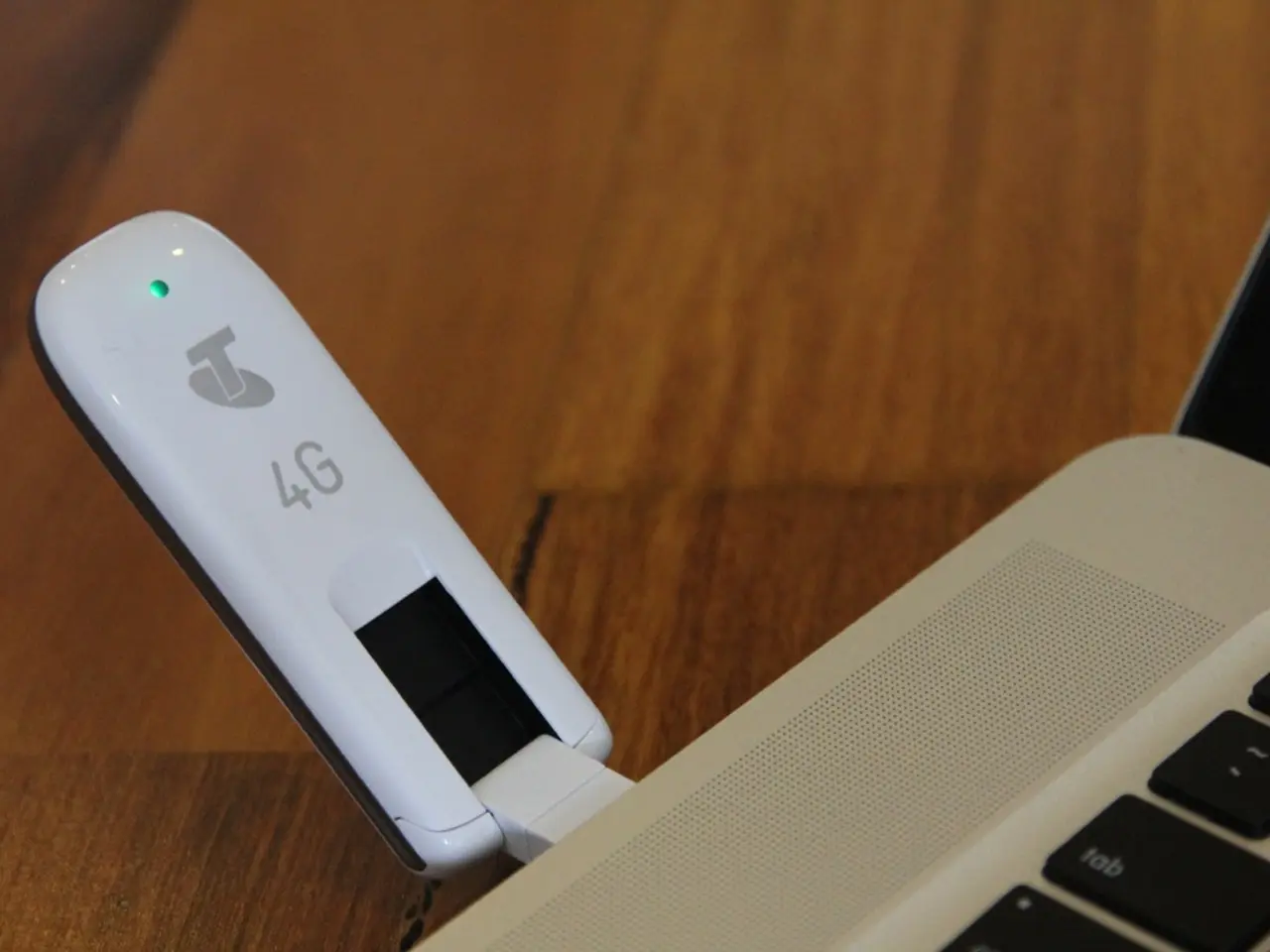Samsung anticipates a improvement in its semiconductor business during the latter half of the year.
In a surprising turn of events, Samsung Electronics, South Korea's tech giant, has reported a significant drop in profit for the second quarter of 2025. This marks the first decline in the company's profit since 2023, sending shockwaves through the tech industry.
The preliminary operating profit for the second quarter of 2025 stands at 4.6 trillion won (€2.9 billion), a 56% decrease year-on-year. Consequently, Samsung Electronics' stock dropped 0.5% in Seoul following the announcement of the second quarter preliminary results.
The declining demand for memory chips, a significant contributor to Samsung Electronics' profits, has led to a decrease in profit margins. The company's memory chip business has been hit hard by the oversupply of memory chips in the market.
Samsung Electronics' management has stated that they will focus on cost reduction and diversification of their product portfolio to mitigate the impact of the weak demand for memory chips.
The causes of the profit decline can be traced back to several factors, primarily related to challenges in the semiconductor sector.
One of the key factors is the U.S. government's imposition of strict export controls on advanced AI chips to China. This has directly impacted Samsung's semiconductor business, leading to inventory write-downs and delayed shipments of key products like HBM3E 12-layer memory chips.
Samsung also faces stiff competition from rivals such as SK Hynix and Micron Technology in the AI chip segment. These competitors have capitalised on the growing demand for High-Bandwidth Memory (HBM) chips, which are crucial for AI applications.
Furthermore, Samsung has experienced delays in developing and supplying next-generation HBM chips, which are essential for AI-driven applications. This lag has allowed competitors to gain significant market share.
While the term "depreciation" is not explicitly mentioned, the impact of inventory write-downs for unsold AI chips due to U.S. export restrictions can be considered similar. These write-downs reflect the reduction in value of inventory that cannot be sold due to export bans, which directly affects Samsung's profitability.
Despite the challenging circumstances, Samsung Electronics' revenue for the second quarter of 2025 remained flat at 74 trillion won (€46 billion). However, the company's second quarter preliminary results missed the market's expectations for profit.
In conclusion, Samsung Electronics' profit decline in Q2 2025 is primarily due to the challenges in the AI chip market, including export restrictions and delays in HBM chip development, which have led to reduced profitability and competitiveness. The company is now focusing on cost reduction and diversification of its product portfolio to navigate these difficulties.
The declining profit for Samsung Electronics in Q2 2025 can be attributed to the difficulties in the AI chip market, such as the U.S. government's export controls on advanced AI chips to China, causing inventory write-downs and delayed shipments. Additionally, Samsung faces stiff competition from rivals in the AI chip segment, particularly in the High-Bandwidth Memory (HBM) chips, crucial for AI applications, where delays in development and supply have compromised their market position.




